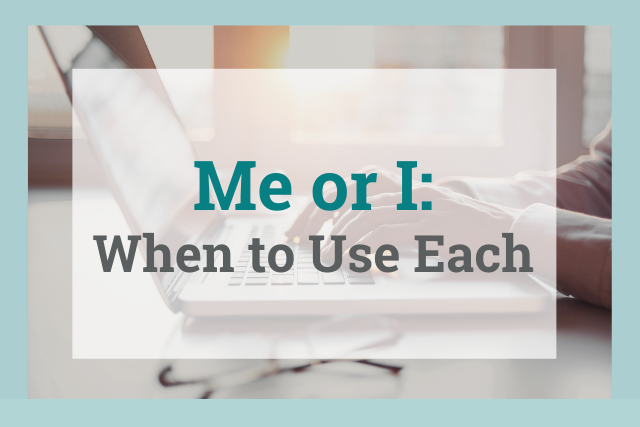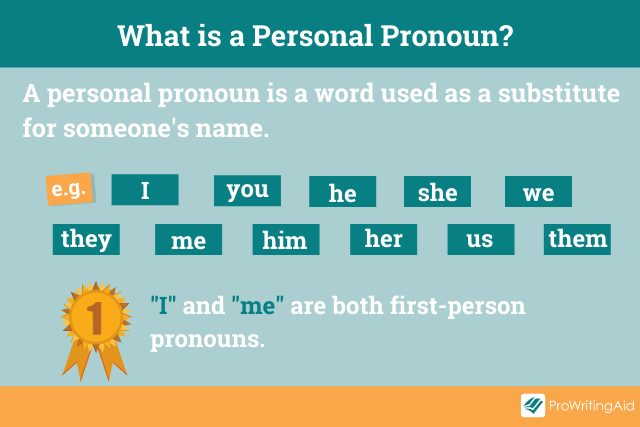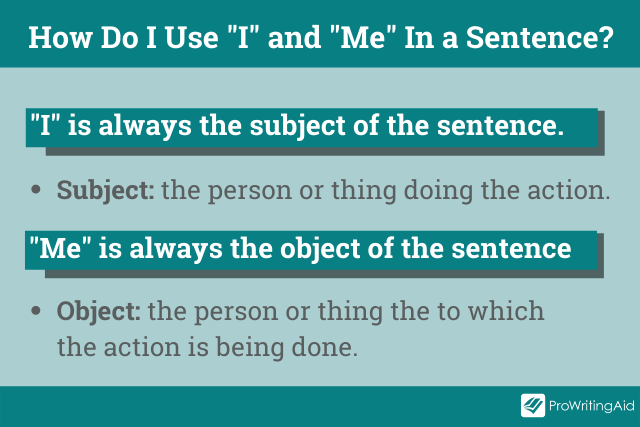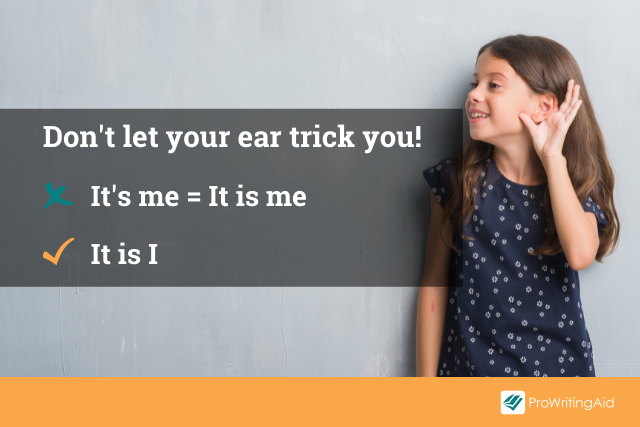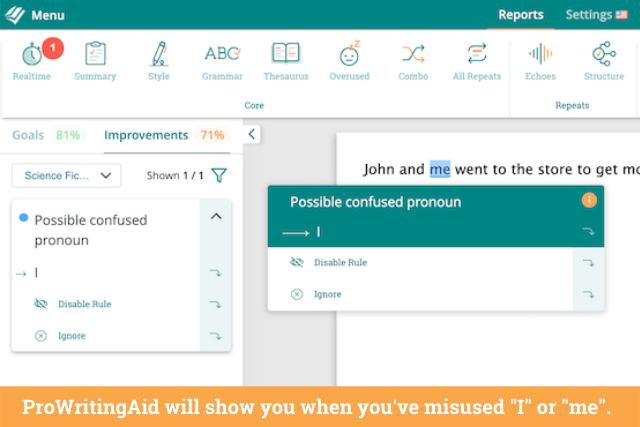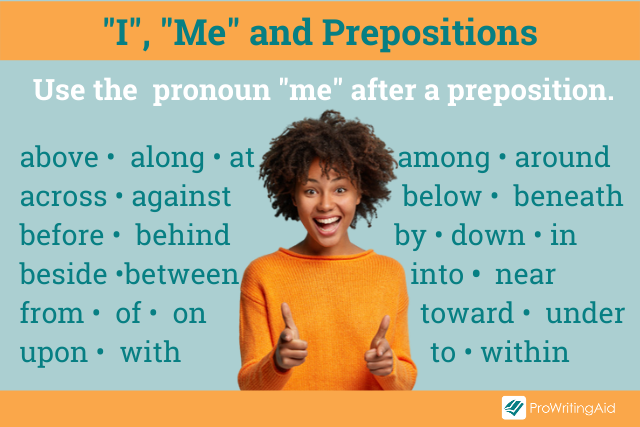You’ve probably heard of the phrase “you and I” before and heard many native speakers use it regularly, thinking it is always correct. While it sometimes is grammatically correct to use “you and I,” it doesn’t mean it’s 100% correct all the time. There’s actually a straightforward rule to follow to get you and I, or you and me correct, so let’s look at it.
You and me should be used when the phrase or sentence should use “me.” You and I should be used when the phrase or sentence should use “i.” If you were to remove the “you and” part, then the sentence should still make sense no matter which variation you use. “You and me are going to the shops” doesn’t work because removing “you and” turns into “me am going to the shops.” “You and I are going to the shops” is correct because removing “you and” gives us “I am going to the shops.”
That’s pretty much the easiest way to remember it. We’ll explain more about it, as well as a few different exceptions for each word. As you might have noticed in the example above, the phrase “you and I are going to the shops” lost the “are” and turned it into an “am” when we replaced it with I am going to the shops.” You have to make sure you use the correct verb for the pronoun.
What Is The Grammar Rule To Remember?
So, the grammar rule has been covered, but let’s dive deeper into it. The easiest way to explain to most people how this rule works is to tell them to remove the “you and” from the phrase entirely and see if it still makes sense. Over time, you’ll get used to how each phrase would sound and end up naturally using the correct form without worrying too much about removing “you and.”
The phrase “somewhere for you and me to go” is correct because if we remove “you and” we’re left with “somewhere for me to go.” Great. That’s how the language rule works. Similarly, “you and I can’t be out too late” becomes “I can’t be out too late” in the same manner. To help with your understanding even more, “you and I” usually comes at the start of a sentence, while “you and me” come at the end of a clause.
The rules are applied throughout the English language. If we use a subjective pronoun like “I,” we’ll always place it at the start of a sentence for it to make sense (or at least the start of a clause, since words like “hopefully” or “because” can come before it). Then we have the objective pronoun “me,” which is usually reserved for the end of a clause (you’ll never see it at the start because it doesn’t belong there).
Interestingly, many native speakers make a mistake between which one to use regularly. It’s known as a hypercorrection, where they correct something to be incorrect grammatically to try and avoid a different rule in the language. Since people are taught “you and I” in some situations, they automatically assume that it is always the correct way to write it, which is wrong. If you can learn this, you’ll have better familiarity with one of the most common language rules than most native speakers have.
Is It “Between You And Me” Or “Between You And I”?
The phrase “between you and me” gets a little harder. Many people believe the same rules should apply, and thus “between you and I” is a correct phrase. However, this is not the case. In fact, it’s never correct to use “between you and I.” If you’re going to say the phrase at all, you have to say “between you and me” if you want to make sure you’re correct every time.
The subject of the verb will always be taken by the subjective pronoun, which means “I,” is used in this sense. However, to work “between” into a sentence, you have to make sure it is an object and not a verb subject. For this reason, the objective pronoun “me” is the only way you can write “between you and me.” If anyone tells you otherwise, you should refer them to this article to help them out!
9 Examples Of How To Use “You And Me” In A Sentence
We’ve explained most of what we know about the rules between you and I or you and me, and we think we’ve got you convinced. However, just to double down on your newfound knowledge, we’re going to help you out with some examples. Using these examples, you’ll be able to see how the phrases are used in different situations. We’ll start with “you and me” and move on after that.
- She loves my sister and me.
- They wanted to see my brother and me.
- They stopped my mother and me from going further.
- They told my father and me to buy it.
- The ice cream man was generous to my friend and me.
- Could you take a picture of my friends and me?
- Have they seen you and me dance?
- My father is hiding from my mother and me.
- The classroom was empty except for my teacher and me.
See how the word “you” can be replaced by any other person in the conversation in each of these examples. It’s also good to notice that each example shows “you and me” towards the end of the phrase, and it’s never present at the start. This is because of how the objective pronoun works. You’ll always need to set up the object before you can use it in this manner. It’s helpful to remember it this way.
9 Examples Of How To Use “You And I” In A Sentence
Now let’s check how “you and I” is used in examples. Most of the time, “you and I” is used at the start of each example rather than at the end. If you remember this throughout your time learning the language, you’ll be setting yourself up for plenty of success! We’ll replace “you” with a few different people again so that you can see how to use it no matter who you’re talking about.
- My sister and I couldn’t find our mother.
- My brother and I are playing video games.
- My mother and I are cooking the family dinner.
- My father and I play catch all the time.
- My friend and I went to the theater together.
- My girlfriend and I just got home.
- You and I need to have a chat.
- You and I can’t help them anymore.
- My teacher and I stayed in the classroom to study.
As we’ve mentioned previously, “you and I” is always used at the start of the sentence. Even if you’re using a different character like “my mother” or “my brother,” you’ll still write them in at the start of the sentence. Make sure you do this every time.
You may also like: “You and I Are” Or “You and I Am? Correct Version Explained
Tip To Remember When To Use “You And I” Or “You And Me”
What tips do we recommend to anyone stuck trying to remember this language rule? Well, as we said, if you can learn this quickly, you’ll be ahead of many native speakers already. Too many native English speakers don’t understand this rule. The easiest tip we can give you is to remove “you and” every time you use it in your head. That way, you can check which pronoun is going to make the most sense.
Say the sentence in your head when you’re thinking about it. We’ll use “you and me are going shopping” as an example. Say it once, then remove “you and” and repeat it. “Me am going shopping.” Okay, you know that doesn’t work. So, try to swap it to “you and I are going shopping” and remove the “you and.” “I am going shopping” does work. Now you know you’ve used the right pronoun for the sentence!
It really is that simple! Most people struggle with it because they’re worried about making a language rule mistake that doesn’t even exist. Native speakers sometimes believe “you and I” to always be correct, but this is not the case.
Quiz: Have You Mastered The “You And Me” Or “You And I” Grammar?
A quiz will help you bolster all your knowledge and see how much you’ve learned from this article. We’re going to give you some questions and multiple choice answers. Ensure you read through the sentence first before answering to make sure you know which phrase to use! Check your answers at the end to see how you did, too.
- (A. you and me / B. you and I) need to talk.
- Can you stop pestering (A. my friend and me / B. my friend and I).
- (A. my mother and me / B. my mother and I) love him very much.
- Where are you taking (A. my brother and me / B. my brother and I)?
- Hopefully, (A. you and me / B. you and I) will be safe.
Quiz Answers
- B
- A
- B
- A
- B
You may also like:
Is It “John And I”, “John And Me”, or “Me And John”?
My Colleagues And Me/I/Myself? Best Version (Formal Writing)
“Me And My Family” or “My Family And I”? Correct Version
“Me And Someone” Or “Someone And I”: Which Is Correct? (12 Examples)
“My Wife And I” vs. “My Wife And Me” vs. “Me And My Wife”
“My Father And I” or “My Father And Me” – Correct Version
“My Mom And I” vs. “My Mom And Me” vs. “Me And My Mom”
Martin holds a Master’s degree in Finance and International Business. He has six years of experience in professional communication with clients, executives, and colleagues. Furthermore, he has teaching experience from Aarhus University. Martin has been featured as an expert in communication and teaching on Forbes and Shopify. Read more about Martin here.
-
EM
-
Articles
-
Usage
-
Pronouns
Summary
In formal writing, use “you and I” as the subject (you and I need an answer) and “you and me” as the object of a verb or a preposition (they have invited you and me to the party; these are for you and me; let’s keep this between you and me).
The general rule
Pronouns like I, she, he, and they are subject pronouns, while pronouns like me, her, him, and them are object pronouns. Thus, “you and I” appears as the subject and “you and me” as the object of a verb or a preposition in a sentence.
Examples
- Subject: You and I need a holiday.
The pronouns you and I are joined by and to together form a compound subject.
- Object: These tickets are for you and me.
The pronouns you and me together form a compound object.
Actual usage differs between formal and informal styles. Also, while we specifically discuss “you and I” and “you and me” in this article, the discussion applies not just to “you,” “I,” and “me” but to all subject and object pronouns (he, she, we, they and him, her, us, them).
As subject
The pronoun “I” is used instead of “me” as the subject in a sentence. Use “you and I” instead of “you and me” in the subject position. (The subject is the performer of an action, or whom or what the sentence is about.)
Examples
- You and I are not the same.
- You and I can achieve anything together.
- Both you and I have been invited.
- Are you and I really to blame?
Tip
If you would use “I” instead of “me,” use “you and I,” not “you and me.”
Example
- I/
usshould adopt a cat.The pronoun “I” works here, not “me.”
You and I /
You and meshould adopt a cat.
As subject in informal usage
In informal communication, particularly in speech, the phrase “you and me” instead of the grammatically correct “you and I” is often used as the subject in a sentence. While this is acceptable in informal usage, stick to using “you and I” in the position of subject in formal styles.
Examples
- Informal: You and me can solve this together.
Formal: You and I can solve this together. - Informal: You and me will always be together.
Formal: You and I will always be together. - Informal: Remember how you and me would send coded notes to each other?
Formal: Remember how you and I would send coded notes to each other?
Caution
Don’t use “you and me” in the position of subject in formal communication. Use “you and I” instead.
Example
- Poor: Perhaps you and me could together find a solution that suits both parties.
Better: Perhaps you and I could together find a solution that suits both parties.
As subject of a clause
Use “you and I” as the subject of a clause, even when the clause itself is the object of a verb.
Examples
- I think (that) you and I should make a website together.
The entire clause “You and I should make a website together” is the object of the verb “think.” The subject of this clause is “you and I.”
- I believed you and I had an understanding.
- I thought you and I were in this together.
- They think you and I are up to something.
- They know what you and I believe is true.
- Do you think you and I could solve this?
As object of a verb
Use “you and me” rather than “you and I” as the object of a verb (where you would use “me” instead of “I”).
Examples
- They will send you and me to prison for this.
- They want you and me to be the scapegoats.
- They have invited you and me to submit our applications.
- Imagine you and me at the top of Mt. Everest.
- Won’t they give you and me a chance to explain?
Tip
Where you would use “me” instead of “I,” use “you and me” instead of “you and I.”
Example
- They must give
I/me more time to sort this out.The pronoun “me” works here, not “I.”
They must give
you and I/ you and me more time to sort this out.
In sentences where a gerund clause is the object, use “you and me,” not “you and I.”
Examples
- Imagine you and me climbing Mt. Everest together.
- I miss you and me working together.
Tip
In formal usage, the possessive form is used with a gerund clause (“your and my” rather than “you and me”), but never a subject pronoun (never “you and I”).
Example
- Incorrect: Imagine you and I working together.
Acceptable: Imagine you and me working together.
Formal: Imagine your and my working together.
As object of a preposition
Use “you and me” instead of “you and I” as the object or complement of a preposition (words like between, for, by, with, about).
Examples
- Look at this old photo of you and me!
- This story was written by you and me in school.
- Why can’t they just leave the gold here with you and me?
- Between you and me, I don’t believe a word he says.
- It is as though this song written for you and me.
- This document needs to be signed by you and me.
Hypercorrect “you and I”
The use of “you and I” in the position of object is becoming increasingly common as a result of hypercorrection. (Hypercorrection is a grammatical error that occurs from an attempt at being grammatically correct.) Having heard that “you and I” is correct (which it is as the subject), people mistakenly use it in the object position as well. Avoid such usage, particularly in formal writing, where you should stick to using “you and me” as the object of a verb or a preposition.
Examples
- Poor: Lulu has invited you and I to the party.
Better: Lulu has invited you and me to the party. - Poor: They expect you and I to solve this problem.
Better: They expect you and me to solve this problem. - Poor: There is nothing going on between you and I.
Better: There is nothing going on between you and me. - Poor: These flowers are for you and I.
Better: These flowers are for you and me.
After the be verb
After forms of the be verb (like is and are), “you and me” is preferred over “you and I” in all but the most formal usage. This is because object pronouns like “me” are generally used instead of subject pronouns like “I” after the be verb.
Examples
- Acceptable: There’s just you and me here.
Highly formal: There are just you and I here. - Acceptable: It was always you and me, and it still is.
Highly formal: It was always you and I, and it still is. - Acceptable: The only fools here are you and me, my friend.
Highly formal: The only fools here are you and I, my friend.
Similarly, in the position of subject complement (which provides information about the subject), “you and me” is generally acceptable, with the strictly correct “you and I” used only very formally.
Example
- Acceptable: The only people whose opinion matters are you and me, don’t you see?
Highly formal: The only people whose opinion matters are you and I, don’t you see?
In comparisons
After as and than in comparisons, both “you and I” and “you and me” are grammatically correct. “You and me” is seen more often in everyday usage, while “you and I” is preferred in formal contexts.
Examples
- Less formal: They are as happy as you and me.
More formal: They are as happy as you and I (are). - Less formal: They are happier than you and me.
More formal: They are happier than you and I.
Note
The words than and as can function as either prepositions or conjunctions. After a preposition, object pronouns like “me” are used; after a conjunction, subject pronouns like “I” are used. Thus, both “you and I” and “you and me” are grammatically correct in comparisons, although “you and I” is preferred in formal usage.
How to get it right: A trick
A simple way to check whether to use “you and I” or “you and me” in a sentence is to try using “we” and “us” instead. If “we” works, use “you and I.” If “us” works, use “you and me.”
Examples
- Correct: We/
usshould do this together.The pronoun “we” works instead of the pronoun “us.” Use “you and I” instead of “you and me.”
Correct: You and I /
You and meshould do this together. - Correct: They have invited
we/us to the party.The pronoun “us” works; “we” does not. Use “you and me,” not “you and I.”
Correct: They have invited
you and I/ you and me to the party. - Correct: She thinks that we/
usare together.
Correct: She thinks that you and I /you and meare together. - Correct: Don’t they know this house belongs to
we/us now?
Correct: Don’t they know this house belongs toyou and I/ you and me now? - Correct: Imagine
we/us running a restaurant together.
Correct: Imagineyou and I/ you and me running a restaurant together. - Correct: Life has given
we/us a second chance.
Correct: Life has givenyou and I/ you and me a second chance.
Examples from literature
Here are some examples from writing that show “you and I” used as the subject in a sentence.
Examples
Surely you and I are beyond speaking when words are clearly not enough.
You and I and Joe would have wanted nothing then, and Joe and I would perhaps have gone partners when I was out of my time . . .
You and I knew strange corners of life.
In the following sentences, “you and me” is correctly used as the object of a preposition.
Example
The person who regards cricket as anything less than a business is no fit companion, gentle reader, for the likes of you and me.
‘You know, between you and me,’ she whispered, . . . ‘they’re very good friends.’
And this example illustrates how “you and me” rather than the strictly correct “you and I” sounds more natural as the subject complement.
Example
Novels are what we peel off, and come at last to the core, which is only you and me.
— Virginia Woolf, The Sickle Side of the Moon (The Letters of Virginia Woolf), ed. Nigel Nicolson (1987)
She/her, he/him, they/them
Like I and me, other personal pronouns function either as the subject or as the object in a sentence. He, she, and they are subject pronouns; him, her, and them are object pronouns.
Examples
- Subject: They are getting married.
- Subject: He and she need a break from each other.
- Object: I brought a gift for them.
- Object: Shall we buy separate gifts for him and her?
Remember to look at the pronoun by itself to judge whether to use he/she/they or him/her/them.
Examples
- Subject: She/
herand I have plans tonight. - Object: They have sent
she/her and me a card. - Subject: Maya and they/
themare responsible for this. - Object: This is for Maya and
they/them, not you.
I have a feeling that a good many teachers of English grammar did a disservice to their students years ago when they taught their students to say, for example,
My girlfriend and I are going to a party on Friday night.
A teacher would then say, «Always put yourself second, which is not only correct but is also the polite thing to do. Put the other person first, and then yourself.» I say, so far so good.
What the teacher neglected to say, however, is that the «wife and I» construction is correct only when it’s being used in the nominative case, when both «girlfriend» and «I» are the subjects of the sentence. It is not correct, however, when the «wife and I» are no longer in the nominative case but in the objective case, as in the sentence below:
Dick and Jane are taking my girlfriend and me to the party on Friday night.
In this sentence the «I» is being taken by Dick and Jane. «I» (and the girlfriend) is the object of their taking, and Dick and Jane are the subjects who are doing the taking. You wouldn’t say «Dick and Jane are taking I to the party,» would you? No, you’d say they are «taking me.»
Sure, putting yourself—I—last in a list of people, whether 2 or 200, is correct and polite, but only if all the people together comprise the subjects of the sentence, not the objects. If you and they are subjects, put yourself last using the nominative I. If on the other hand you and they are objects, then put yourself last using the objective me.
A few examples:
The marriage counselor gave my wife and me some good advice.
My wife and I were benefitted greatly by seeing a marriage counselor.
Would you like to go hiking with Rachel and me?
Rachel and I would like to go hiking with you, if you’d like.
Now be sure to keep this information just between you and me.
The English language is full of grammar rules. It can be pretty easy to forget some of them. Understanding the difference in how to use personal pronouns is a good place to start if you want to improve the readability of your work.
In this article, we’ll look at whether to choose «I» or «me» so all your sentences can be clear.
But let’s start with a little ground work.
«When Should I Use «I» or «Me»?»
«I» and «me» are first-person personal pronouns that we use to refer to ourselves.
A personal pronoun is a word used as a substitute for someone’s name.
Simply put, this means you should use «I» or «me» in a sentence as a substitute for your name when you are talking about yourself.
Here are some examples:
-
Correct: I am feeling happy today.
-
Incorrect: [Your name] am feeling happy today.
-
Correct: That sounds good to me!
-
Incorrect: That sounds good to [your name]!
But how do you know whether to use «me» or «I» when you’re referring to yourself? It’s all to do with your role in the sentence.
What Is a Personal Pronoun?
Before we jump in to «I» vs. «Me», let’s take a quick look at what personal pronouns are and what they do in sentences.
Personal pronouns are short words used in place of the name of a person or thing. They include:
- I
- Me
- You
- We
- Us
- He
- She
- Him
- Her
- They
- Them
- It
So instead of this repetitive sentence:
Sarah drove Sarah’s car to Sarah’s house.
We can write:
Sarah drove her car to her house.
How Do I Use «Me» and «I» in a Sentence?
Every word has a function in a sentence. There are many different functions, but «I» and «me» each only have one.
- «I» is always the subject of the sentence: the person or thing doing the action.
e.g. I passed the note to Elena.
You are the one doing the passing (completing the action), so you use «I».
- «Me» is always the object of the sentence: the person or thing the action is being done to.
e.g. Elena passed me a note.
You are having something passed to you (the object of the action), so you use «Me».
So, your first step when choosing whether to use «I» or «me» is to work out if you are doing the action or being acted on.
Is It Jane and Me or Jane and I?
The subject/object rules from above still apply, even when you are referring to multiple people.
If you want to refer to yourself and another person (or several other people) as the subject(s) of the sentence—the people completing an action—you should use «I». It gets easier with examples:
Correct: Jane and I went to the store to get more groceries.
Both you and Jane are completing the action here—you are the subjects of the sentence. So, like before, you refer to yourself with «I».
Incorrect: Jane and me went to the store to get more groceries.
But if you want to refer to yourself and another person (or several other people) as the object(s) of the sentence—the people being acted on—you should use «me».
Correct: Claire served the meal to Sophie and me.
Claire is the subject of this sentence (the one completing the action) and you and Sophie are the indirect objects (the ones receiving Claire’s action). So you should use «me».
Incorrect: Claire served the meal to Sophie and I.
Is it «John and I» or «I and John»?
The next thing to remember, is that «I» always comes last with multiple subjects. (It’s «John and I», not «I and John».)
Correct: John and I went to the store.
Incorrect: I and John went to the store.
You should still use «I» (and «I» still always comes last in the sequence), even if there is more than one other subject:
- Correct: Jane, John, and I went to the store to get more dog food.
- Incorrect: I, Jane, and John went to the store to get more dog food.
- Incorrect: Jane, John, and me went to the store to get more dog food.
- Incorrect: Me, Jane, and John went to the store to get more dog food.
Is it «John and Me» or «Me and John»?
The same rules apply to sequencing when «me» is the object of a sentence. So, «me» always comes last with multiple objects.
- Correct: Clarissa cooked dinner for John and me.
- Incorrect: Clarissa cooked dinner for me and John.
- Incorrect: Clarrisa cooked dinner for John and I.
- Incorrect: Clarrisa cooked dinner for I and John.
Even with multiple people as the sentence object, «me» still comes last in the sequence.
-
Correct: Clarrisa cooked dinner for Oscar, John, and me.
-
Incorrect: Clarissa cooked dinner for me, Oscar, and John.
-
Incorrect: Clarrisa cooked dinner for I, Oscar, and John.
-
Incorrect: Clarissa cooked dinner for Oscar, John, and I.
How Do I Remember When To Use «I» and «Me»?
If you are a native English speaker, you can use your ear to help you figure out which is the right pronoun in cases of multiple persons.
When determining the subject, leave out the other people to help you figure out which is correct:
- Correct: I went to the store…
- Incorrect: Me went to the store…
Likewise, when determining the object, leave out the other people:
- Correct: Clarissa cooked dinner for me…
- Incorrect: Clarissa cooked dinner for I…
Do I Use «I» After or Before a Verb?
«I» is used before the verb, while «me» is almost always used after the verb.
There are a few instances where «I» comes after the verb. This happens with verbs such as:
- am
- are
- is
- was
- were
- appeared
- seemed
Correct: It is I who needs the extra water.
Incorrect: It is me who needs the extra water.
Correct: It seems I am to blame.
Incorrect: It seems me am to blame.
Can I Use «Me» Instead of «I» in Speech?
Common speech can sound right to the ear, even when the grammar is wrong. In certain cases, you may want to save the correct pronoun for writing. The best example is the answer to the question, Who is it?
In common speech, we often hear It’s me (It is me) and think nothing of hearing that.
But correct grammar with the state-of-being verb is takes the subject pronoun. In writing with correct grammar, you say, It is I.
Your friends may think your language is a bit stiff if you use correct grammar in everyday speech, but at least you’ll be correct.
We know this a lot to take in all at once. And while you can always bookmark this article as a good reference point, that’s not the only resource you have.
ProWritingAid has over 20 reports, with the grammar checker being your go to to see if you’re using the right pronoun. You’ll see a notice with suggestions if your pronoun use needs improvement.
Download our free browser extension to make sure you use the correct pronoun wherever you write.
Is It «Between You and Me» or «Between You and I»?
It’s between you and me. That’s because «you» and «me» are the objects of the word «between» in this phrase.
Between is a preposition. If you are referring to yourself after a preposition, you should always use me. Here are some common prepositions to help you out:
- above
- across
- against
- along
- among
- around
- at
- before
- behind
- below
- beneath
- beside
- between
- by
- down
- from
- in
- into
- near
- of
- off
- on
- to
- toward
- under
- upon
- with
- within
Here are some examples to help you with «me» as the object of a preposition:
-
Correct: The spelling competition was now between Jim and me.
-
Incorrect: The spelling competition was now between Jim and I.
-
Correct: The association letter about the new AED (automated external defibrillator) in the clubhouse was from Marcia and me.
-
Incorrect: The association letter about the new AED (automated external defibrillator) in the clubhouse was from Marcia and I.
-
Correct: When the instructor asked answers from the break-out groups, my group with Jerry, Linda, George, and me had the best answers.
-
Incorrect: When the instructor asked answers from the break-out groups, my group with Jerry, Linda, George, and I had the best answers.
Is It «Taller Than Me» or «Taller Than I»?
One place where «me» and «I» are often confused is in comparisons. That’s usually because a verb is left off the end of the sentence.
Here’s an example:
- Correct: John is taller than I am.
In speech you might say:
- John is taller than I.
While the verb am is left out of the sentence, it’s still grammatically correct.
-
Incorrect: John is taller than me.
-
Correct: I think she is smarter than I am.
-
Incorrect: I think she is smarter than me.
Master First-Person Personal Pronouns
Remember: The easiest way to remember the difference between «me» and «I» in writing is to work out if you are completing or receiving the action in the sentence.
- Use «I» for the sentence subject taking the action.
- Use «me» as the object of a sentence (or after a preposition).
That was a lot of grammar rules. Now have some fun with Me, Myself, and I from De La Soul.
Take your writing to the next level:
20 Editing Tips From Professional Writers
Whether you are writing a novel, essay, article, or email, good writing is an essential part of communicating your ideas.
This guide contains the 20 most important writing tips and techniques from a wide range of professional writers.

Write a sentence for each word/phrase.
1. (at the moment)
2. (on Sundays)
3. (in the summer)
4. (always)
5. (right now)
6. (in the winter)
7. (never)
reshalka.com
Английский язык 5 класс (рабочая тетрадь) Ваулина. 7 Grammar Practice. Номер №3
Решение
Перевод задания
Напишите предложение для каждого слова / фразы.
1. (на данный момент)
2. (по воскресеньям)
3. (летом)
4. (всегда)
5. (прямо сейчас)
6. (зимой)
7. (никогда)
ОТВЕТ
1. (at the moment) I am doing my homework at the moment.
2. (on Sundays) We go swimming in the swimming pool on Sundays.
3. (in the summer) We go camping in the summer.
4. (always) I always help my mother in the kitchen.
5. (right now) My sister is having a picnic right now.
6. (in the winter) My dad goes skiing in the winter.
7. (never) My sister never walks our dog.
Перевод ответа
1. (в данный момент) Я сейчас делаю домашнее задание.
2. (по воскресеньям) По воскресеньям купаемся в бассейне.
3. (летом) Летом ходим в походы.
4. (всегда) Я всегда помогаю маме на кухне.
5. (прямо сейчас) Моя сестра сейчас на пикнике.
6. (зимой) Папа зимой катается на лыжах.
7. (никогда) Моя сестра никогда не выгуливает нашу собаку.


